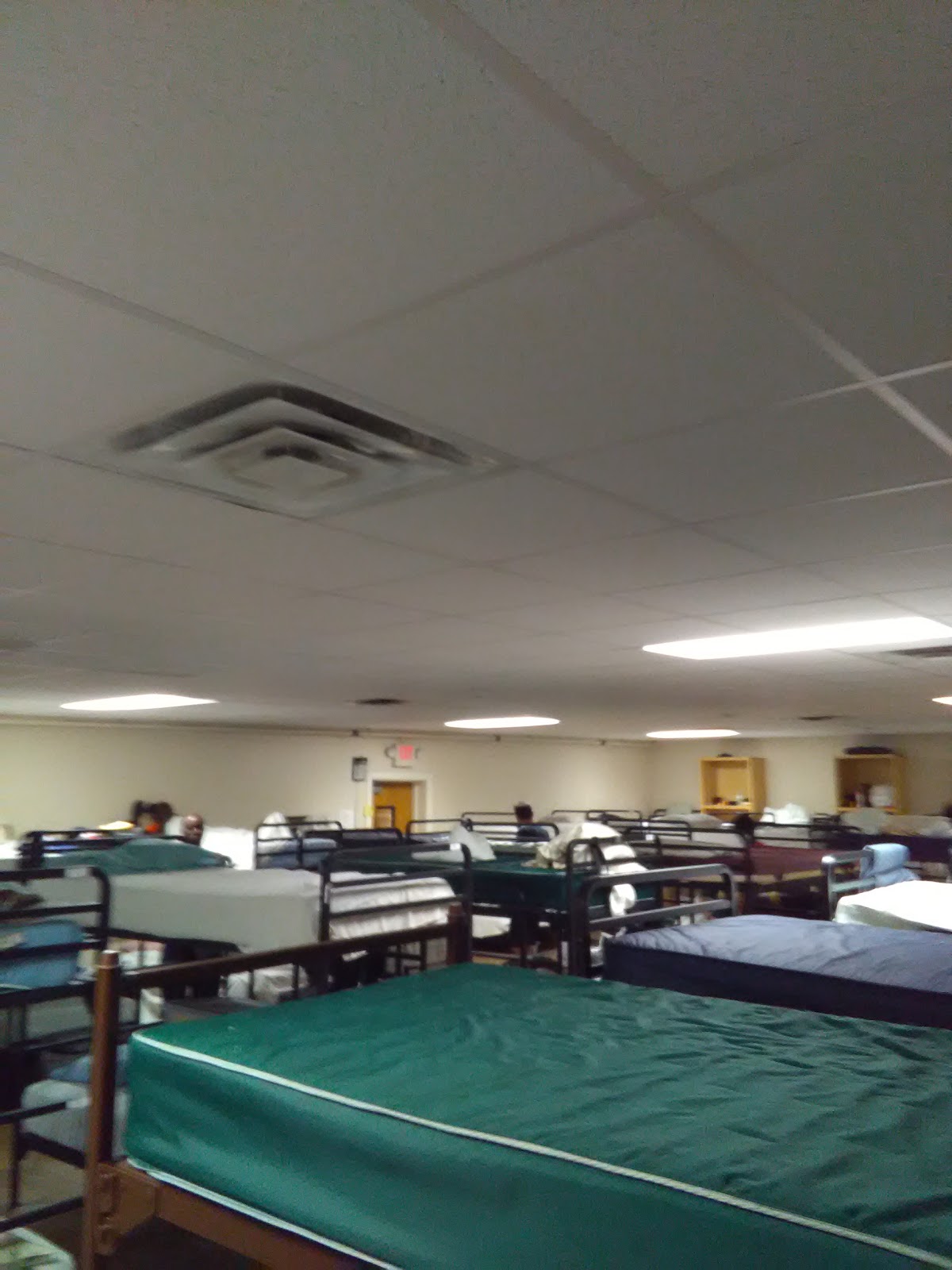Overview
Hiway 80 Rescue Mission - New Creation Discipleship Recovery Program is a substance abuse treatment center for people seeking treatment near Gregg County. As part of their treatment modalities for recovery, Hiway 80 Rescue Mission - New Creation Discipleship Recovery Program provides individual psychotherapy during treatment. Hiway 80 Rescue Mission - New Creation Discipleship Recovery Program is located in Longview, Texas, accepting no payment accepted for treatment.
Hiway 80 Rescue Mission - New Creation Discipleship Recovery Program at a Glance
Payment Options
- No payment accepted
- Medicare
- Medicaid
Assessments
- Comprehensive substance use assessment
Age Groups
- Adults
Operation
- Private non-profit organization
Treatment At Hiway 80 Rescue Mission - New Creation Discipleship Recovery Program

Conditions Treated
Alcoholism:
Alcohol addiction is a condition where someone feels a strong and uncontrollable urge to drink alcohol, often leading to negative effects on their health, relationships, and daily life. To assist individuals grappling with alcohol addiction, various strategies exist. Initially, supervised detoxification may be necessary to ensure a safe cessation of alcohol consumption. Following this, counseling and therapy play a crucial role in addressing the psychological facets of the addiction. Engaging in support groups can also offer a sense of camaraderie and comprehension.
Opioid Addiction:
Opioid rehabilitation centers focus on aiding individuals in overcoming opioid addiction, whether stemming from illegal substances like heroin or prescription medications like oxycodone. These facilities provide a comprehensive approach that combines medical detoxification and ongoing physical care with intensive therapy to address the root causes of addiction.
Substance use treatment:
Substance use rehabilitation is a structured program aimed at assisting individuals in overcoming their dependencies on drugs or alcohol. Through a combination of medical detoxification, counseling, and various therapeutic approaches, these programs strive to address the physical and psychological aspects of addiction. The goal is to equip individuals with the knowledge, skills, and support necessary to attain lasting sobriety, while also working to identify and address the underlying issues contributing to substance misuse. By fostering a supportive environment, substance use rehabilitation centers provide a pathway towards a healthier, substance-free life.

Levels Of Care
Detoxification:
Detoxification (detox) is the process of clearing the body of drugs or alcohol that an individual has consumed. The purpose of detox is to safely manage withdrawal symptoms when someone stops taking drugs or alcohol. It denotes a clearing of toxins from the body of the patient who is acutely intoxicated and/or dependent on substances of abuse. Detoxification seeks to minimize the physical harm caused by the abuse of substances.
Aftercare:
Aftercare is the continued support and care that individuals receive following the completion of their primary treatment program for substance abuse or addiction. This phase aims to aid individuals in maintaining their sobriety, improving personal skills and coping strategies, and integrating back into society. Aftercare can include ongoing therapy, support group meetings, education, and monitoring, which are crucial for preventing relapse and promoting long-term recovery. Through a combination of community support, accountability, and personal development, aftercare provides a structured pathway for individuals to continue their recovery journey in a supportive environment.
Outpatient:
Outpatient treatment in a rehab center offers flexible therapy sessions, typically ranging from 1-3 hours per week, allowing individuals to continue daily activities while receiving care. In contrast, intensive outpatient programs demand a more rigorous commitment, often involving 9-15 hours weekly, providing a more immersive therapeutic environment without the need for inpatient stays.
Hospital inpatient treatment:
Inpatient treatment involves an intensive, residential therapeutic program designed to treat serious addictions or other medical conditions. With a typical stay ranging from 30 to 90 days, individuals receive a structured regimen of various therapies including individual and group counseling, behavioral therapies, and family counseling. Under professional supervision, patients immerse themselves in a supportive environment, conducive to addressing underlying issues and promoting long-term recovery.

Treatment Modalities
Individual psychotherapy:
Individual Psychotherapy is a personalized therapeutic approach aimed at aiding individuals in overcoming addiction and its underlying psychological triggers. A licensed therapist works closely with the individual through one-on-one sessions to unearth and address personal challenges, emotional issues, and behavioral patterns contributing to their substance abuse. Individual psychotherapy lays a robust foundation for a sustainable recovery and a better quality of life by fostering self-awareness, coping strategies, and healthier behavioral responses.
Group counseling:
Group therapy entails therapeutic sessions conducted in a collective setting rather than one-on-one. It encompasses various modalities, from support groups and experiential therapy to psycho-education and beyond. The approach focuses on treatment and emphasizes the dynamic interactions and shared experiences among group members.
Life Skills:
Life skills refer to a vital component of rehabilitation that focuses on equipping individuals with the essential abilities and strategies necessary to lead a fulfilling and substance-free life. These skills encompass a wide range of practical tools, such as effective communication, problem-solving, stress management, time management, and financial literacy. By integrating life skills training into addiction treatment programs, individuals gain the confidence and competence needed to overcome addiction and thrive in their personal and social lives, promoting long-term recovery and well-being.
Religious Programs:
Religious programs in rehabilitation centers aim to harness the transformative power of faith and spirituality in aiding individuals on their journey toward recovery from addiction or other behavioral issues. These programs often integrate various faith-based teachings and practices within a structured rehabilitation framework to inspire hope, resilience, and a sense of purpose. Participants are encouraged to explore and strengthen their spiritual connections alongside participating in conventional therapeutic interventions, fostering a holistic approach to healing and self-discovery. Through spiritual reflection and community support, individuals are empowered to rebuild their lives with a newfound sense of faith and meaning.
Contact Information
DISCLAIMER: The facility name, logo and brand are the property and registered trademarks of Hiway 80 Rescue Mission - New Creation Discipleship Recovery Program, and are being used for identification and informational purposes only. Use of these names, logos and brands shall not imply endorsement. BetterAddictionCare.com is not affiliated with or sponsored by Hiway 80 Rescue Mission - New Creation Discipleship Recovery Program.


